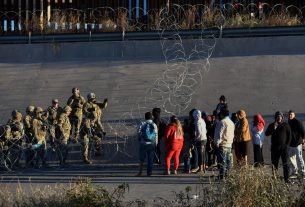It’s been an unpredictable year in the world of cinema. Major Hollywood releases like Joseph Kosinski’s Top Gun: Maverick and James Cameron’s Avatar: The Way of Water were predictable hits at the box office, with the former earning $1.488 billion worldwide and becoming the highest-grossing film of 2022, and the latter opening to $441.7M globally. Meanwhile, other movies have seen dwindling returns in theaters, from big-budget franchise fare like the Dwayne Johnson DC comics vehicle Black Adam, which has had its sequel canceled, to critical favorites like Todd Field’s Tár.
Meanwhile, away from American productions, a number of international films like S.S. Rajamouli’s Telugu-language film RRR found critical acclaim and broke box office records. RRR has grossed more than $140 million worldwide and had the second best opening weekend ever for an Indian title in North America.
Additionally, onscreen depictions of Iran have taken on new significance as the world looks to artists to contextualize current uprisings. Ongoing protests in Iran, catalyzed by the death of Mahsa Amini in police custody on Sept. 16, started as resistance against gender-based violence and morphed into wider criticism of corruption and repression at the hands of the Islamic Republic, which also restricts creative practices such as filmmaking. In Ali Abbasi’s Holy Spider and Jafar Panahi’s No Bears, neither director set out to capture the zeitgeist in their films, but their films nevertheless met the moment as only a movie can do.
Here are some of the best international films of 2022, many of which are poised to make an impression at next year’s awards shows.
Aftersun (British)
Set in the late 1990s, Aftersun follows 30-year-old single father Calum (Paul Mescal) as he takes his 11-year-old daughter Sophie (Frankie Corio) to a Turkish holiday resort. As an adult, years later, Sophie (Celia Rowlson-Hall) has come of age and pieces together memories of her now absent dad. With hints of a docu-realist approach, Aftersun balances the nostalgia of being on the brink of teendom and the sexual discovery it brings with the hazy pursuit of self-awareness that accompanies adulthood. Scottish filmmaker Charlotte Wells’ debut feature—co-produced by Barry Jenkins—left audiences in tears at its Cannes premiere in May. Since then, it has been heralded by critics (including TIME’s) as one of the year’s best films, winning seven out of 16 nominations at the British Independent Film Awards this month.
Read more: The 10 Best Movie Performances of 2022
Holy Spider (Denmark)
Holy Spider follows the real-life case of Iran’s “Spider Killer,” Saeed Hanaei (Mehdi Bajestani), who strangled 16 sex workers, typically with their headscarves, from 2000 to 2001. The film centers Rahimi (Zar Amir Ebhrami), a female investigative journalist from Tehran who goes undercover in the holy city of Mashhad in order to catch Hanaei—a married man with children who believes he is cleansing the streets of impurity. Directed by Iranian filmmaker Ali Abbasi, Holy Spider is Denmark’s selection for best international feature at the 2023 Oscars. The film’s exploration of vulnerable womanhood in a hyper-religious society took on new meaning as the world saw mass protests against Iran’s “morality laws.”
Read more: TIME’s Heroes of the Year: Women of Iran
RRR (India)
S.S. Rajamouli’s Telugu-language film RRR (Rise! Roar! Revolt!) has captivated audiences across the world and thwarted Bollywood blockbusters to earn its position as the fourth-highest-grossing Indian film of all time. Bolstered by the largest budget seen in Indian cinema to date, the film stitches together fight sequences, dance numbers, and dramatic action scenes to tell the epic story of two legendary Indian revolutionaries who find themselves on opposite sides of India’s struggle for independence. Set in 1920, during the years of the British Raj, the Gond tribe’s guardsman, Komaram Bheem (N. T. Rama Rao Jr.), pretends to be a Muslim man named Akhtar as he travels toward Delhi to rescue a young girl who was abducted by a British administrator and his wife Catherine. Meanwhile, the Nizamate of Hyderabad warns the administrator’s office of an imminent threat, leaving his wife to enlist the help of A. Rama Raju (Ram Charan), an ambitious officer in the Indian Imperial Police, to counter the incoming attack.
Joyland (Pakistan)
Set in Lahore, Pakistan, Joyland tells the groundbreaking love story of Haider (Ali Junejo), the married youngest son of the “happily patriarchal” Rana family, and Biba (Alina Khan), a transgender dancer, after they secretly meet at an erotic dance theater. Rana Amanullah (Salmaan Peerzada) heads up the middle-class Rana household, which consists of Haider and his wife, another son and his wife, and four granddaughters. He hopes one of his two sons will soon provide him with a first male grandchild. Joyland tackles gender roles in a way that has been received as refreshing and progressive to some, and uncomfortable to others who, as director Saim Sadiq tells TIME, “brand it as having a LGBTQ agenda to make sure that the film doesn’t come out.” It’s Pakistan’s entry for the Oscars but it almost didn’t reach national audiences due to a controversial government ban that was ultimately reversed.
No Bears (Iran)
Blurring the line between cinema and his own reality, Iranian film director Jafar Panahi plays a version of himself. In the movie, his character remotely directs a movie from a village in Iran near the Turkish border that he is not allowed to cross: In reality and in the film, he’s not allowed to leave Iran, and this summer he was sentenced to six years in prison after being arrested for criticizing the government’s arrest of fellow Iranian filmmakers. Panahi’s film follows a couple, Zara (Mina Kavani) and Bakhtiar (Bakhtiar Panjei), who are attempting to escape exile in Turkey for a new life in Western Europe. But their pursuit for a stolen passport threatens to separate them as only one half of the couple can obtain one. Running parallel is the love story of Soldooz (Amid Davari) a politically active college dropout, and Gozal (Darya Alei), who was promised to a local boy at birth as part of a peace settlement between their bickering families. Limited freedoms—romantic, geographic, and creative—leave every character in a worse place than where we found them.
Triangle of Sadness (Sweden)
Two-time Palme d’Or winner Ruben Östlund’s Triangle of Sadness is a class satire that takes aim at the ultra-rich passengers aboard a luxury yacht. Calling the shots is the ship’s charming Marxist captain (Woody Harrelson), who forbids the crew from saying “no” to any passengers, no matter how ridiculous their demands. Among these passengers is a supermodel couple named Carl and Yaya (the late Charlbi Dean), a Russian oligarch, and a British arms dealer. But their deep pockets prove useless when the choppy ocean waves overpower the yacht during a heavy storm. After a great deal of motion sickness-induced vomiting (be forewarned), the yacht eventually sinks and passengers wash up on an island where they try to survive.
Read more: The Best Result of the Streaming Boom? America Finally Loves Foreign-Language TV
Decision to Leave (Korea)
Lauded as a tense black-widow noir, Park Chan-wook’s Decision to Leave centers detective Hae-joon (Park Hae-il) as he investigates the mysterious death of a man who plummeted to his death at the base of a mountain peak in South Korea. Whether he jumped or was pushed is unknown but Hae-joon suspects the victim’s much younger widow Seo-Rae (Tang Wei), an emigrant from China who works as a caretaker for seniors. Hae-joon begins to stalk Seo-Rae but the pair develop an unusual relationship that clouds his professional judgment. The gripping thriller earned a Golden Globe Nomination for Best Picture – Non-English Language and has added to the growing recent international success of Korean onscreen stories including Bong Joon-ho’s Parasite (2020), Lee Isaac Chung’s Minari (2020), and Hwang Dong-hyuk TV hit Squid Game (2021).
Argentina, 1985 (Argentina)
Based on a true story, Santiago Mitre’s Argentina, 1985, is a tense recounting of the Trial of the Juntas—the judicial trial of the de facto military government that ruled Argentina between 1976 to 1983. Led by federal prosecutor Julio César Strassera (Ricardo Darín), a team of young lawyers including Julio’s assigned deputy, Luis Moreno Ocampo (Peter Lanzani), take on the heads of the dictatorship in a high-pressure legal battle outlining the former government’s use of mass torture, rape, kidnapping, and murder as weapons of social control. The film maintains the essence of a courtroom drama as the team gathers evidence for 709 cases in only 17 weeks.
All Quiet on the Western Front (Germany)
Adapting Erich Maria Remarque’s 1928 world-renowned book of the same name, Director Edward Berger’s All Quiet on the Western Front tells the story of a young German soldier on the western front of World War I. The novel was notably scouted for a film adaptation in 1930 by movie mogul Carl Laemmle, the co-founder of Universal Pictures, which led to an Academy Award for Best Picture. This latest remake explores a distinctly German understanding of war. Paul Bäumer (Felix Kammerer) and his classmates are eager to enlist in the army to serve their fatherland but are quickly met with the brutal reality of war. Amid mass graves and rainy trenches, Paul befriends a number of other young men as they witness atrocities caused by French attacks. The film flashes forward to 1918—as Germans are struggling and a liberal politician tries to persuade his superiors to consider a ceasefire. All Quiet on the Western Front is Germany’ submission for the Oscars and it has also secured a Golden Globes nomination for best non-English language film.
Bardo, False Chronicle of a Handful of Truths (Mexico)
Oscar-winning filmmaker Alejandro González Iñárritu’s Bardo, False Chronicle of a Handful of Truths follows a renowned journalist and documentary filmmaker Silverio (Daniel Giménez Cacho) who returns to his home country of Mexico after living in Los Angeles with his wife Lucía (Griselda Siciliani). Drawing on Iñárritu’s personal experience, the film follows Silverio through an existential crisis as he grapples with his identity, familial relationships, the folly of his memories as well as his country’s history. He seeks answers in his past to reconcile who he is in the present. Bardo is Iñárritu’s first feature film since winning back-to-back Best Director Oscars for Birdman (2014) and The Revenant (2015), the latter of which also earned Leonardo DiCaprio his first Oscar for Best Actor. The film is also his first collaboration with Netflix.
The Box (Venezuela)
Venezuelan filmmaker Lorenzo Vigas’ third feature film The Box debuted at the 2021 Venice Film Festival, where it picked up the Cinema for UNICEF award. The film is also Venezuela’s entry for this year’s international film Oscar race. The Box, which counts as a producer acclaimed Mexican filmmaker Michel Franco, is a taut drama which follows Hatzin, a young teenager who travels to collect his father’s remains from a communal grave in northern Mexico. However, after a casual encounter with an enigmatic man on the street who resembles his late father, he is sucked into the dark and violent underworld of Northern Mexico’s manufacturing industry.
Saint Omer (France)
Director Alice Diop’s Saint Omer is one of five films to be shortlisted for the French Academy’s 2023 best international feature. Billed as a modern play on the Medea—a mythical enchantress who murdered her two sons in Greek tradition—the film follows the novelist Rama (Kayije Kagame) as she attends the trial of Laurence Coly (Guslagie Malanga), a young Senegalese Frenchwoman woman accused of killing her 15-month-old daughter by leaving her to the tide on a beach in France. The story grapples with the struggles of parenthood but takes a supernatural turn when Laurence testifies that sorcery was behind her crime.
More Must-Reads From TIME


